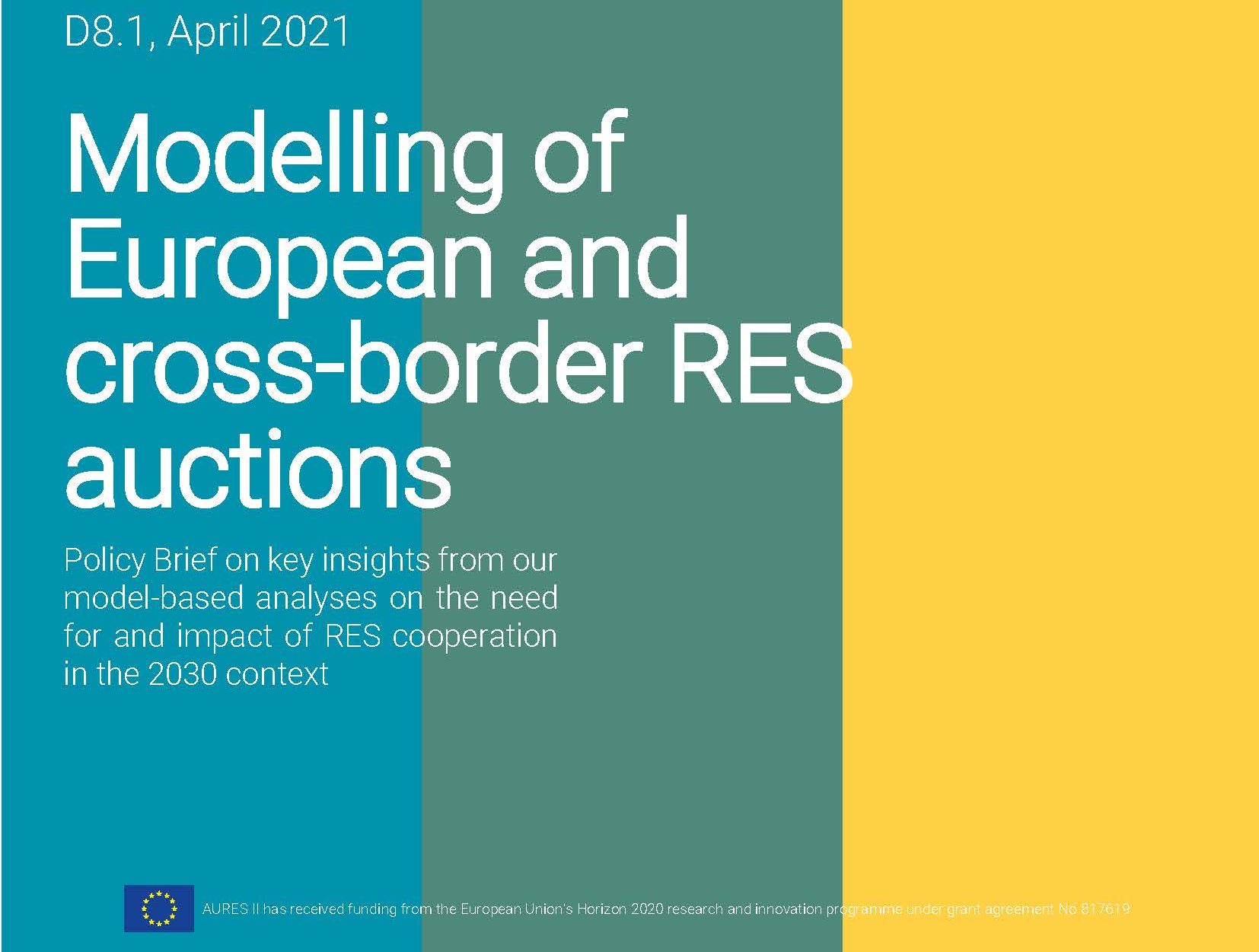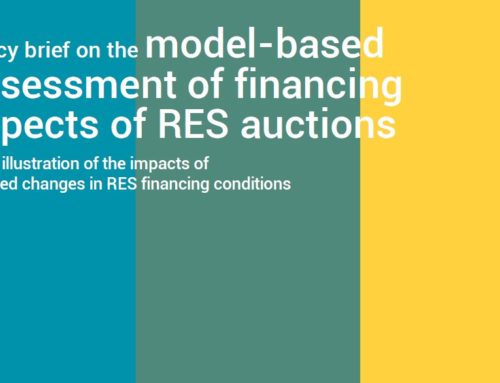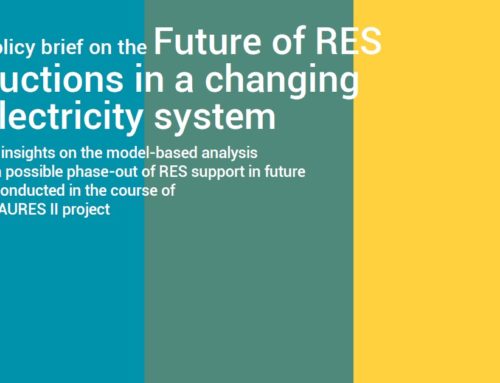This policy brief aims to provide key insights from our model-based analyses on the need for and impact of RES cooperation in the 2030 context. Here different scenarios for meeting (and exceeding) the EU’s overall 2030 RES target have been derived, aiming to illustrate the feasibility of the 2030 RES ambition in accordance with past agreements taken (i.e. to achieve at EU level an overall RES share of at least 32%) and under consideration of the needs arising from the EU Green Deal. Apart from feasibility and corresponding costs impacts, a focal point in that analysis was also to analyse the need for RES cooperation, practically implemented by use of European or cross-border RES auctions. Thus, this policy brief summarises key outcomes of our analyses performed and concludes with a summary of key findings and lessons learnt.
This report is structured as follows:
• Chapter 2 is dedicated to inform on the approach taken and the models applied
• Chapter 3 discusses key results gained on 2030 RES deployment, providing a feasibility check of planned/required RES use and identifies the need for RES cooperation.
• Chapter 4 complements the above by taking a closer look at the impacts arising from RES coopera-tion. We thereby focus on the electricity sector, and shed light on the RES uptake proclaimed therein as well as on corresponding supportJust like administratively set support, auction-allocated su... expenditures, indicating the changes in supportJust like administratively set support, auction-allocated su... expenditures and cost to consumer that may arise from making broader use of RES cooperation.
• Chapter 5 concludes this policy brief with a summary of key findings and lessons learnt.
Download the report here.




